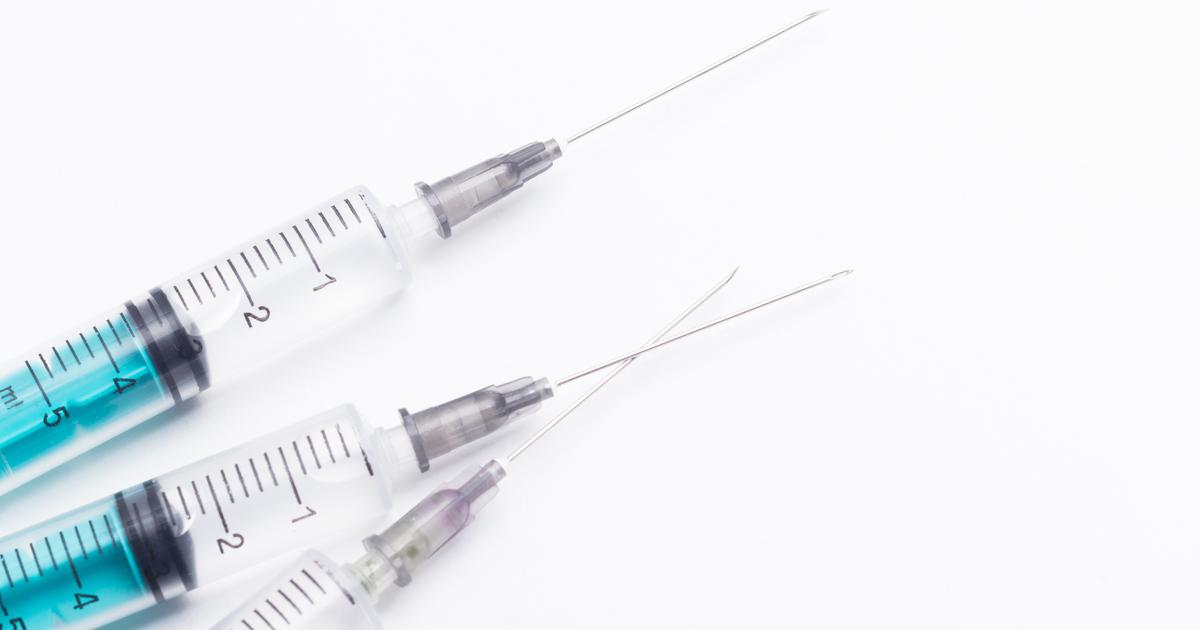“It's a lot but it's too little,” says Gabriel Attal.
2 million booster doses of the Covid-19 vaccine have been administered in France, or - only - one in three eligible inhabitants.
On Wednesday, the government spokesperson launched yet another “call to recall”, encouraging French people aged 65 and over, those suffering from co-morbidities and caregivers to make an appointment.
They are nearly 20 million in total, including more than 5 million eligible now because they were vaccinated at least 6 months ago.
Such booster doses (mainly third doses), aimed at strengthening immunity to the virus, have already been administered in several dozen countries.
For international comparisons and despite the limitations of the exercise, we made the choice - somewhat constrained - to report the number of people who received a booster dose to the entire population.
Read alsoVaccination against Covid-19: will booster doses be required each year?
Children under 12 are not yet vaccinated anywhere and the target population, comprising at least the elderly and frail, varies from country to country.
The High Authority for Health and the President of the Vaccine Guidance Council Alain Fischer, however, deem "probable" that the entire adult population will be called upon in the medium term to receive a booster dose.
Precipitation in Israel?
Israel is the undisputed "leader" in this area. The Hebrew country has decided to embark on a booster vaccination campaign at the end of July, before expanding it to the entire population (including adolescents) gradually until the end of August. Some experts felt that the government had moved too quickly, given that there is still a lack of data for healthy adults. The fact remains that one inhabitant of all ages combined has now received three doses of the vaccine (in detail, 75% of inhabitants aged 60 or over, more than 50% of 20-59 year-olds and 30% of 16-19 years).
Uruguay, Chile and Iceland follow, each above 15%. Several of these countries, such as Israel, Iceland and Uruguay, have in common that they were hit by a fairly strong epidemic wave at the beginning of the summer. This could have pushed their leaders to launch more quickly in the booster vaccinations.
In England, 4 million people, or more than 7% of the population, have received a booster.
But that remains less than half of the eligible inhabitants (aged at least 50, with a severe form of Covid-19, caregivers, etc., vaccinated at least six months ago), whose number is increasing over the years. days.
Many experts across the Channel hoped for a faster deployment, especially since the United Kingdom has focused most of its strategy on vaccines.
Almost all restrictions have been lifted and there is no health pass.
France ahead of its European neighbors
France appears at the same level as the United States, but the latter really launched three weeks later, around September 20.
On the other hand, and as Gabriel Attal put it on Wednesday, it has nothing to be ashamed of compared to its neighbors, members of the European Union.
Italy, Germany, Spain, Greece and Austria administered a booster dose to a smaller proportion of the population.
In Italy, just over 1% of the population and 20% of that today eligible received an additional injection, for example.
In Spain, 400,000 people received a recall, or less than 1% of the population.
For the moment, the target population is smaller (residents of retirement homes and particularly fragile people), but it will be extended to over 70s at the end of October.
Read also Health pass and vaccination: will the booster dose end up being mandatory?
The current scenario thus seems a little different from that at the very start of the vaccination campaign, last January.
At the time, France had left with a lot of delay on its neighbors, but the government defended itself and assumed this strategy aiming in particular not to rush the "antivax".









